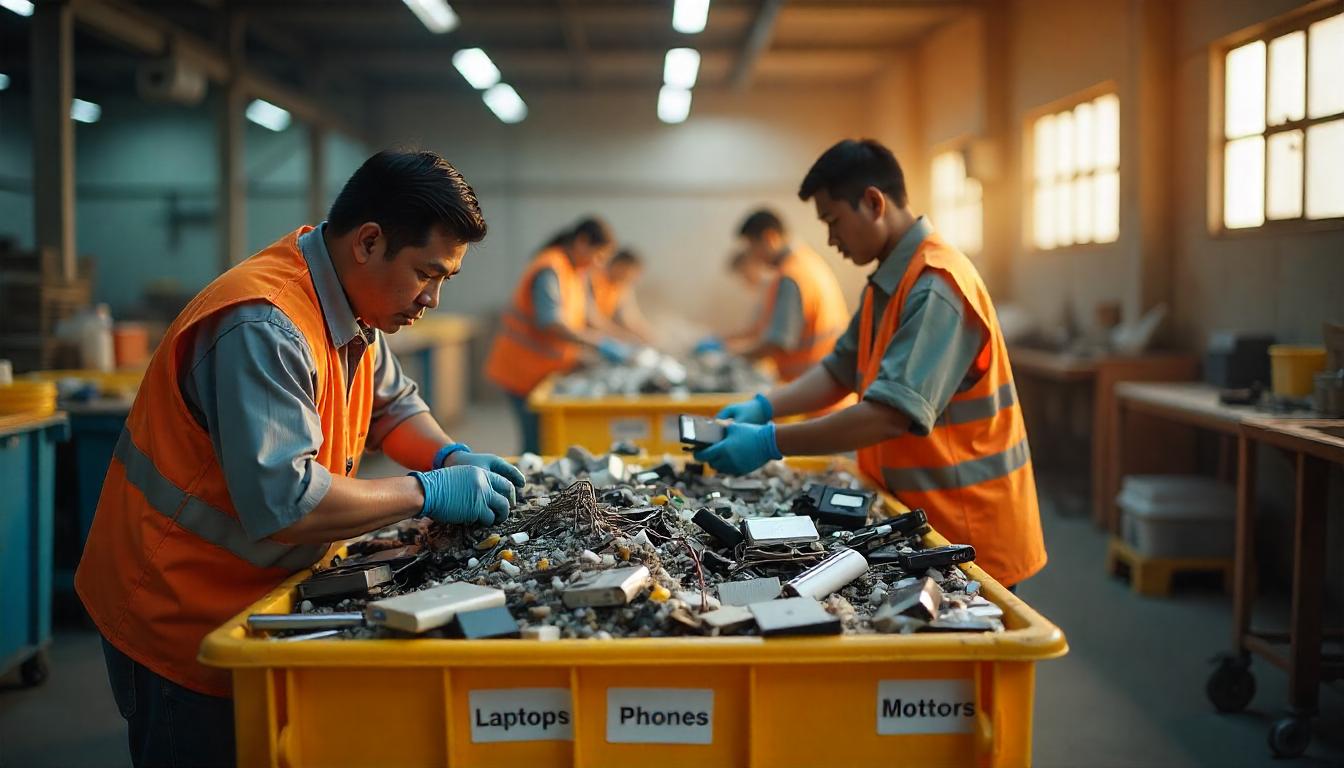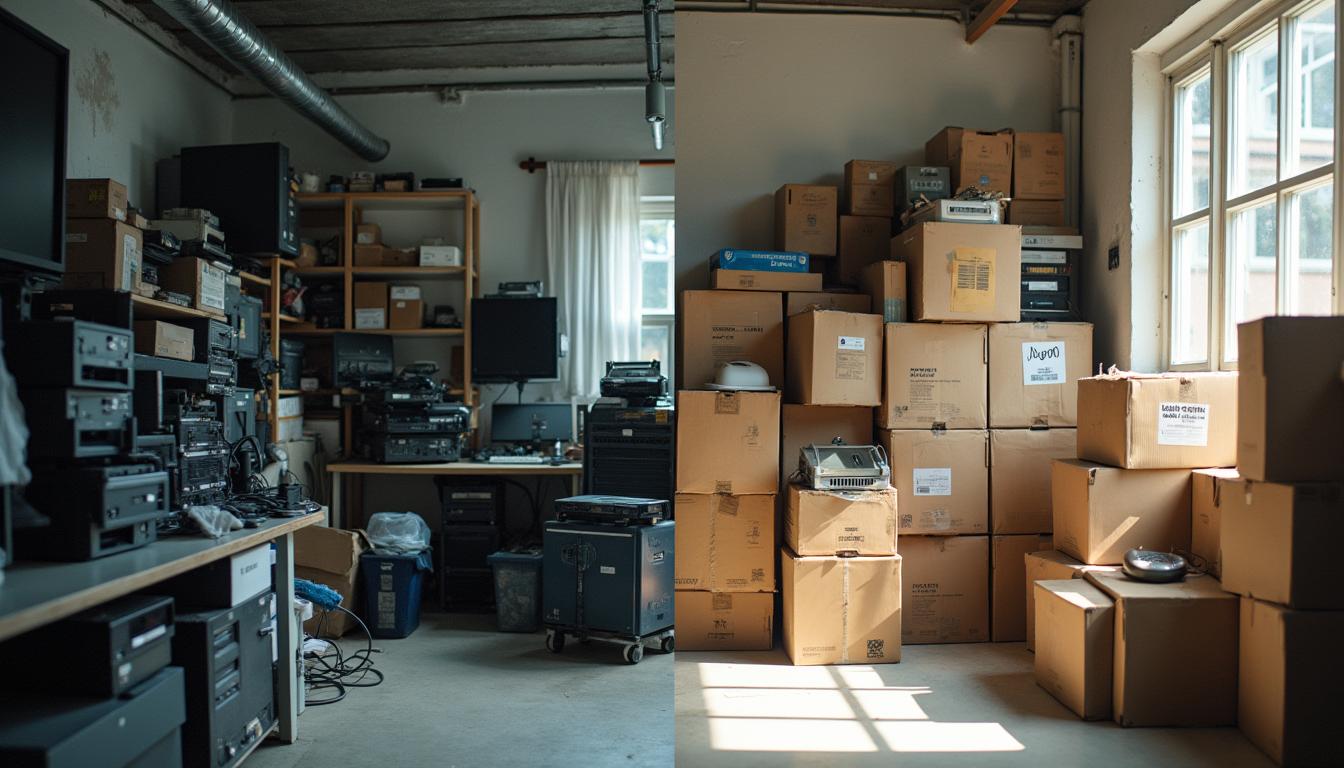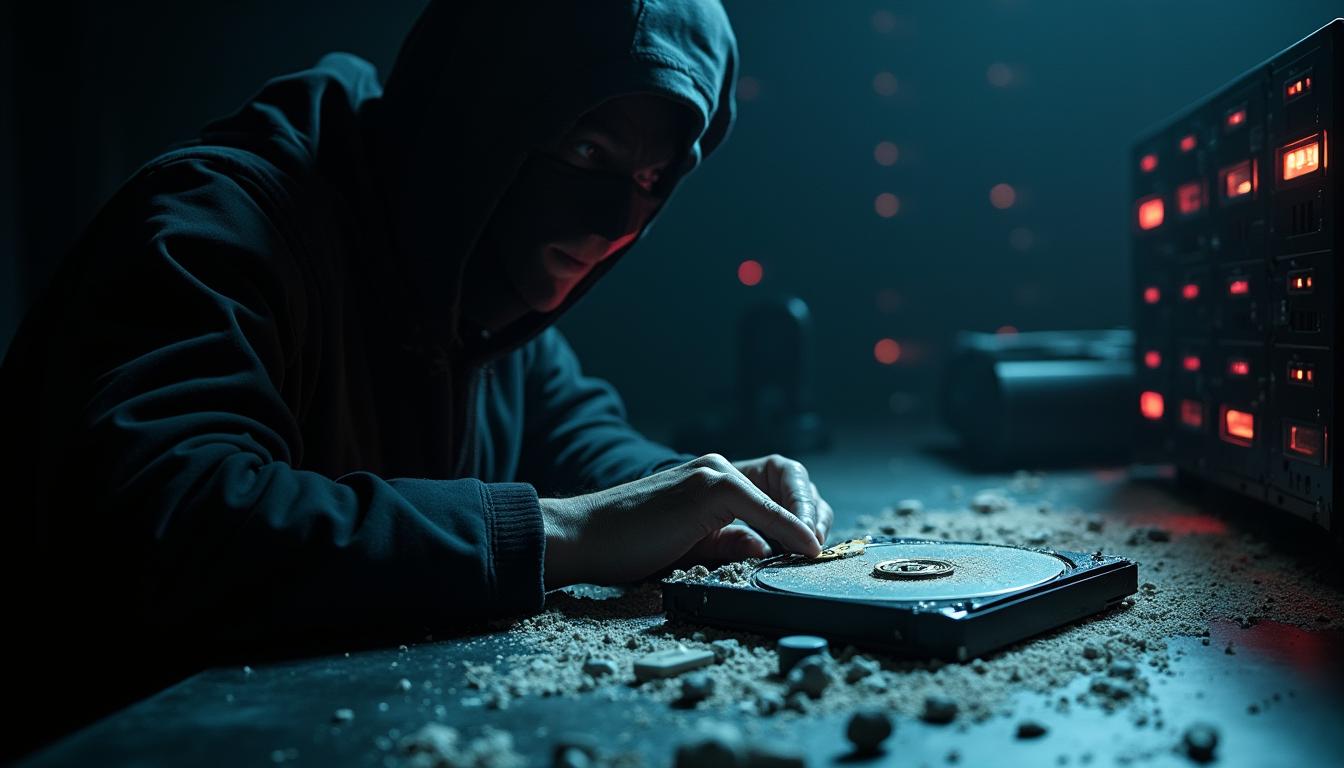In today’s digital world, electronic devices are everywhere — from our workspaces to our kitchens, even in our handbags and cars. But when these devices become outdated, spoiled, or unused, what happens next?
Most Malaysians still throw electronics into the general trash, not realizing that they are creating a form of waste called e-waste (electronic waste), which is harmful to the environment, a risk to data security, and — in many cases — recyclable.
At mypc2u, we’re working to change that. Whether you’re a home user or a business owner, understanding what qualifies as e-waste is the first step toward responsible recycling. Here’s a detailed look at the types of e-waste you probably didn’t know you could recycle — and why it matters.
💻 1. Computers and Laptops
One of the most common types of e-waste is computing equipment:
- Desktop PCs, CPUs, All-in-One computers
- Laptops (working or not)
- Keyboards, mice, webcams, laptop chargers
These devices often store sensitive personal or business data and contain lithium batteries, circuit boards, and metals that require special handling. Simply throwing them away can lead to data leaks and environmental pollution.
📱 2. Mobile Devices
Your smartphone may be old, cracked, or simply unused — but it’s still valuable e-waste:
- Mobile phones and tablets
- Power banks, phone chargers, USB cables
- Bluetooth accessories like earbuds or speakers
These small devices are easy to forget but often end up in landfills. They contain heavy metals and plastic components that do not break down easily.
🌐 3. IT Peripherals and Networking Equipment
Many offices and homes accumulate small devices like:
- Wi-Fi routers, modems, access points
- External hard drives and USB drives
- Cables, adapters, docking stations
Although small in size, these devices often contain data, rare metals, and plastic shells that need proper sorting and recycling.

Demonstrates how offices can responsibly manage laptop and IT disposal by documenting and preparing devices for certified recycling.
🖨️ 4. Printers and Scanners
These bulky items are common in both home offices and workplaces:
- Inkjet and laser printers
- Scanners, fax machines, photocopiers
- Toner and ink cartridges (hazardous if leaked)
Most people don’t realize these can be recycled — or that they must be handled carefully due to sharp components and chemicals inside.
📺 5. Consumer Electronics
Not all e-waste comes from computers:
- Televisions, monitors, DVD/Blu-ray players
- Home audio systems, speakers, soundbars
- Remote controls and AV equipment
These items contain glass, plastic, copper wiring, and often lead, which should never go into general waste.
🍳 6. Small Home Appliances
Even your kitchen and household gadgets qualify as e-waste:
- Electric kettles, rice cookers, blenders
- Hair dryers, electric shavers, irons
- Fans, clocks, lamps with circuit boards
While they may seem harmless, they still run on electrical components and are recyclable through proper e-waste channels.

Highlights door-to-door e-waste collection services in Malaysia, making recycling easy and accessible for residential users.
🔋 7. Batteries and Power Supplies
One of the most overlooked e-waste types:
- Laptop batteries
- UPS (uninterruptible power supply) units
- Alkaline and rechargeable batteries
These items are hazardous if leaked or overheated, and should always be recycled separately from regular electronics.
🏢 8. Office Electronics
For corporate users or SOHO setups:
- Projectors, CCTV units, door access readers
- Office phones, shredders, barcode scanners
- Conference speakers, AV switchers
These devices are often upgraded or left unused during office revamps. Recycling them protects data, compliance, and storage space.
♻️ Why Proper Sorting Matters
Sorting e-waste correctly:
- Ensures efficient recycling and recovery of parts
- Prevents contamination between toxic and recyclable materials
- Reduces waste sent to landfills
- Supports Malaysia’s Environmental Quality Act (EQA 1974) and e-waste programs
- Helps recyclers like mypc2u prepare the correct handling, transport, and reporting for your devices

Captures the reality of how e-waste often accumulates unnoticed, reminding users that those unused devices can be responsibly recycled instead of forgotten.
🚚 What Can You Do Today?
If you live in Kuala Lumpur or Selangor, mypc2u offers:
- ✅ Door-to-door e-waste collection (zero charge for residential pickups)
- ✅ Help sorting and identifying e-waste
- ✅ Safe data disposal and eco-compliant recycling
Just send us a photo or list of what you have — and we’ll take care of the rest.
📌 Final Thoughts
E-waste isn’t just a tech problem — it’s a human, environmental, and ethical issue. By understanding what qualifies as e-waste and choosing to recycle instead of throwing things away, you’re helping protect your privacy, the community, and our future.
Don’t wait until it piles up. Take stock of your old gadgets, devices, and electronics today — and let us help you recycle them responsibly.



